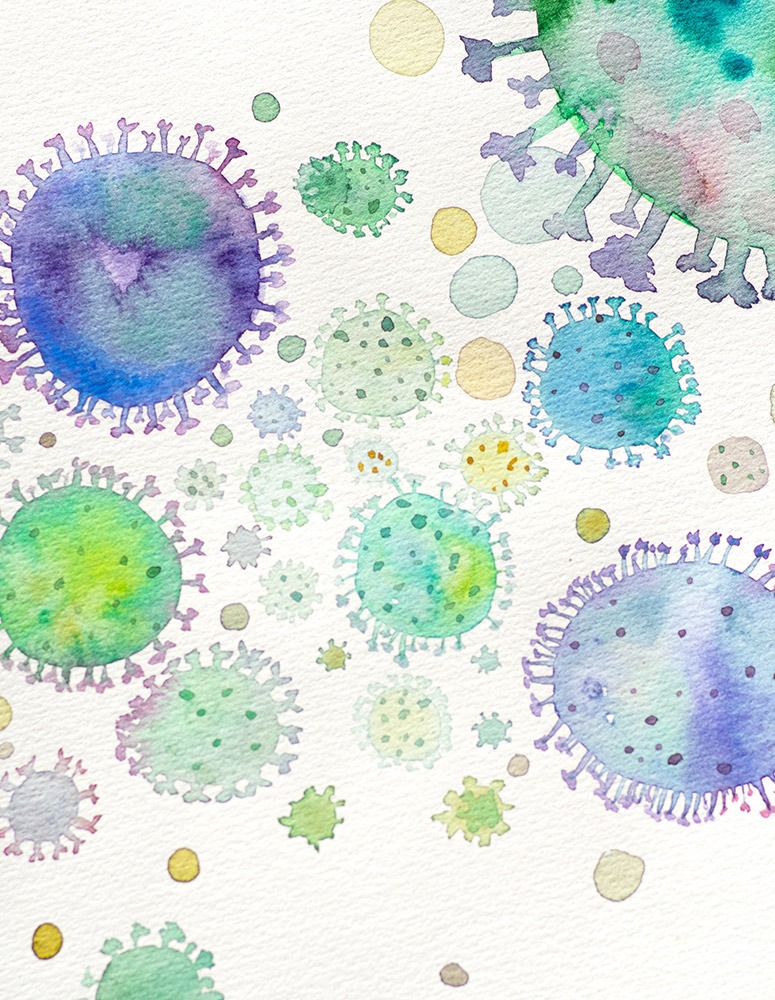Can social distancing of bacteria help prevent acne?
Researchers say yes!
Acne is one of the most common and distressing skin conditions in the world and believed to be caused by the over-production of certain bacteria, such as Cutibacterium acnes (formerly Propionibacterium acnes), or C. acnes. In the past, dermatologists have prescribed antibiotics to counter the over-proliferation of C. acnes. The only problem with this strategy is that antibiotics can also kill off beneficial bacteria, as well as contribute to the development of resistant strains of bacteria.
Then investigators discovered the benefits of retinoids, which were believed to work against acne by drying out the skin—creating a less hospitable environment for C. acnes. The downside of this treatment is the very reason it is effective: retinoids dry the skin—and also makes it more susceptible to sun damage.
Recently, however, researchers have been pursuing a new line of investigation involving quorum sensing. Quorum sensing (QS) is an ability that allows bacteria to regulate their gene expression in response to their population density. (They “sense a quorum.”) Quorum-sensing bacteria produce signaling molecules that accumulate during specific stages of growth, or as influenced by their environment. For example, evidence from in vitro studies suggests that QS enables P. acnes to increase production of sebum triglycerides and free fatty acids (FFAs) such as oleic, palmitic and lauric acids. Dermatologists have long known that severe forms of acne are associated with overly productive sebaceous glands—but now it appears that the acne bacteria themselves are causing the glands to produce the conditions in which they flourish.
Murad has recently developed a moisturizer that is included in its acne product line, which works by disrupting C. acnes so that it can’t congregate in sufficient numbers to trigger its quorum-sensing abilities. In effect, the treatment applies “social distancing” to C. acnes!
A growing body of evidence shows that the gut microbiota are likely to be involved in the pathogenic process of acne. That being the case, another strategy for minimizing the virulence of C. acnes is to cultivate flourishing gut and skin microbiomes so that the beneficial bacteria themselves minimize the ability of C. acnes to propagate. Healthy skin is created from the inside-out: you are what you eat! This is yet another reason to eat a healthy diet consisting mostly of fresh vegetables and fruits, what I call “embryonic foods” (seeds, nuts, and eggs), whole grains, and healthy fats. You might also benefit from a probiotic supplement or foods, such as yogurt or kefir, containing live probiotic organisms.
Finally, managing stress is important for preventing acne outbreaks. Anxiety, worry, and depression are suspected of aggravating acne by altering the gut microbiota and increasing intestinal permeability, which can contribute to skin inflammation. Over the years, an expanding body of research has highlighted the presence of a gut–brain–skin axis that links gut microbes, oral probiotics, and diet to acne control and management.
The more we learn, the more we understand how deeply all the systems of the body are connected. As well, our bodies are embedded in our environment and those conditions also profoundly affect our health. That’s why Modern Wellness is a holistic endeavor—encompassing the Four Pillars of skincare, diet, exercise, and stress management. When we neglect one, we weaken the others. On the other hand, when we eat our water, protect our skin, move our body, and manage our stress we create the conditions for optimal wellness.
To your health!
